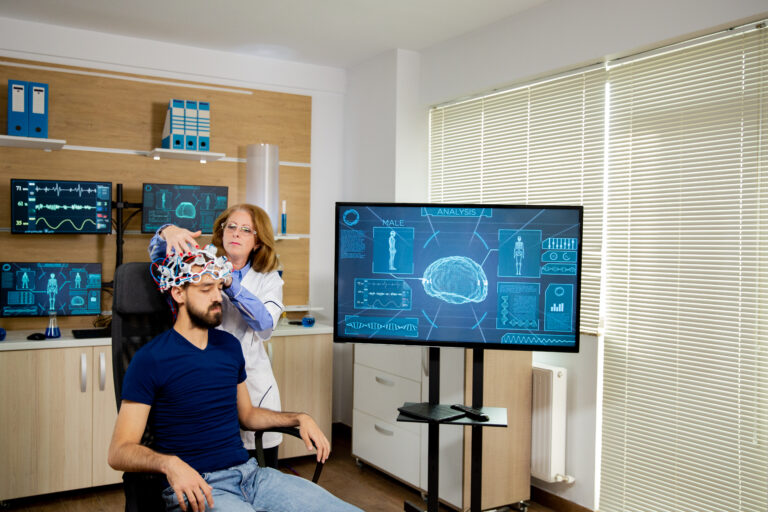Integrating IT Equipment and Services with RCM: How Infrastructure Impacts Billing Accuracy
In today’s healthcare landscape, financial success is closely tied to operational efficiency—and nowhere is this more evident than in the Revenue Cycle Management (RCM) process. While practices often focus on billing teams and coders to maximize revenue, an equally crucial but sometimes overlooked aspect is the role of Information Technology (IT) infrastructure in supporting billing accuracy and timeliness.
From electronic health records (EHR) to automated eligibility checks and secure cloud-based systems, IT equipment and services form the backbone of modern RCM. This blog explores how infrastructure impacts billing accuracy and how healthcare organizations can optimize their technology stack to support a high-performing revenue cycle.
The Technology-RCM Connection
At the heart of every claim submitted, denied, or paid is data—and that data is captured, processed, and transmitted through technology. Whether it’s a front-desk terminal verifying patient insurance or a server hosting a coding application, IT equipment ensures the seamless flow of revenue-critical information.
Modern RCM systems depend on integration across:
- EHR/EMRs
- Practice Management Software (PMS)
- Clearinghouses
- Patient Portals
- Payer Systems
When these systems are not properly aligned or lack hardware support, the consequences ripple across the revenue cycle—from registration errors to delayed reimbursements.
Common Infrastructure Gaps Affecting Billing
Despite increasing digital adoption in healthcare, infrastructure issues still disrupt RCM workflows. Here are some of the most common pitfalls:
1.Outdated Hardware
Slow computers, legacy servers, or malfunctioning scanners can delay charting, documentation uploads, or even claim submissions. A few extra seconds at each step may seem minor but multiply across dozens of patient encounters per day—and lost productivity becomes measurable revenue loss.
2.Poor System Integration
When the billing platform doesn’t integrate smoothly with the EHR or lab system, manual data entry becomes necessary—leading to increased errors, missed charges, and duplicate tasks. Billing staff may waste hours correcting what automation could have prevented.
3.Unstable Internet and Connectivity
Many practices rely on cloud-based platforms, telehealth services, and real-time eligibility tools. Downtime or slow internet connections can disrupt batch claims, prior authorizations, or clearinghouse communications—creating bottlenecks in the billing cycle.
4.Lack of Mobile & Remote Access
With the shift to hybrid work and remote coding teams, lacking secure remote access to billing tools and patient data can hinder turnaround times and delay AR processes.
Key Areas Where IT Enhances Billing Accuracy
To improve billing performance, organizations must view IT not just as support, but as a revenue enabler. Here’s how a strong infrastructure impacts billing accuracy:
1.Automated Eligibility Verification
Real-time checks at the point of scheduling or check-in reduce denials related to coverage lapse, prior authorizations, or payer mismatch. When linked with practice management tools, automation flags errors before claims are created.
2.AI-Powered Coding Assistance
Natural Language Processing (NLP) and AI-based coding systems integrated with EHRs can scan provider notes and suggest optimal CPT/ICD codes, reducing undercoding or upcoding risks and compliance violations.
3.Digital Charge Capture
Tablet-based rounding tools or mobile EHR apps allow physicians to document and charge services in real-time. This not only speeds up billing cycles but ensures no service is forgotten or misrecorded.
4.Smart Claim Scrubbing Tools
Modern RCM systems include claim scrubbing modules that identify missing fields, improper modifiers, or invalid code pairings—before submission to payers, thereby reducing rejections and increasing first-pass acceptance rates.
IT & Cybersecurity: Protecting Revenue and Compliance
Beyond speed and accuracy, your IT systems must also support HIPAA compliance and data security. A breach or ransomware attack can halt operations, freeze accounts, and bring legal liability.
Critical steps include:
- Multi-factor authentication (MFA)
- Routine data backups
- Endpoint encryption for laptops and mobile devices
- Intrusion detection software
- Secure VPN access for remote billers
Billing data is sensitive—both financially and clinically. Ensuring the integrity and security of your billing systems is not just a technical task but a financial imperative.
The Role of IT Support & Service Providers
IT infrastructure is not just about hardware—it includes maintenance, updates, troubleshooting, and user support. A slow printer or unresponsive system can delay daily billing routines. Having a responsive, healthcare-aware IT vendor can dramatically improve billing workflows.
What to look for in an IT partner:
- Experience in healthcare compliance (e.g., HIPAA)
- 24/7 monitoring of systems and servers
- Knowledge of EHR/PMS platforms like Athenahealth, eClinicalWorks, or Kareo
- Quick response times (SLA-based)
- Scalability for growth or additional locations
When your billing team is equipped with stable, secure, and integrated systems, their productivity—and your collections—increase exponentially.
Best Practices for IT-RCM Alignment
To ensure your IT systems are boosting—not blocking—your revenue cycle, consider the following best practices:
| Best Practice | Impact on Billing Accuracy |
| Conduct quarterly IT health checks | Prevents downtime and slowness during claims |
| Map integration between EHR and RCM | Reduces manual data entry errors |
| Use cloud-based billing platforms | Enables scalability, access, and redundancy |
| Create downtime protocols | Keeps billing functional even if systems fail |
| Train billing staff on tech tools | Reduces user error and improves system usage |
Conclusion
In a digital-first healthcare economy, your infrastructure is your revenue. Investing in the right IT equipment and services is no longer a luxury—it’s a necessity for accurate, compliant, and timely billing. Practices that align their RCM strategies with robust IT systems experience fewer denials, faster reimbursements, and stronger financial health.
Whether you’re upgrading hardware, switching to a new EHR, or considering cloud migration—every infrastructure decision should be made with revenue cycle impact in mind.
At Right Medical Billing, we partner with practices to not only manage their revenue cycles but also help identify and implement the tech solutions that make billing smarter and faster. Because in the business of healthcare, precision starts with the systems behind it.



